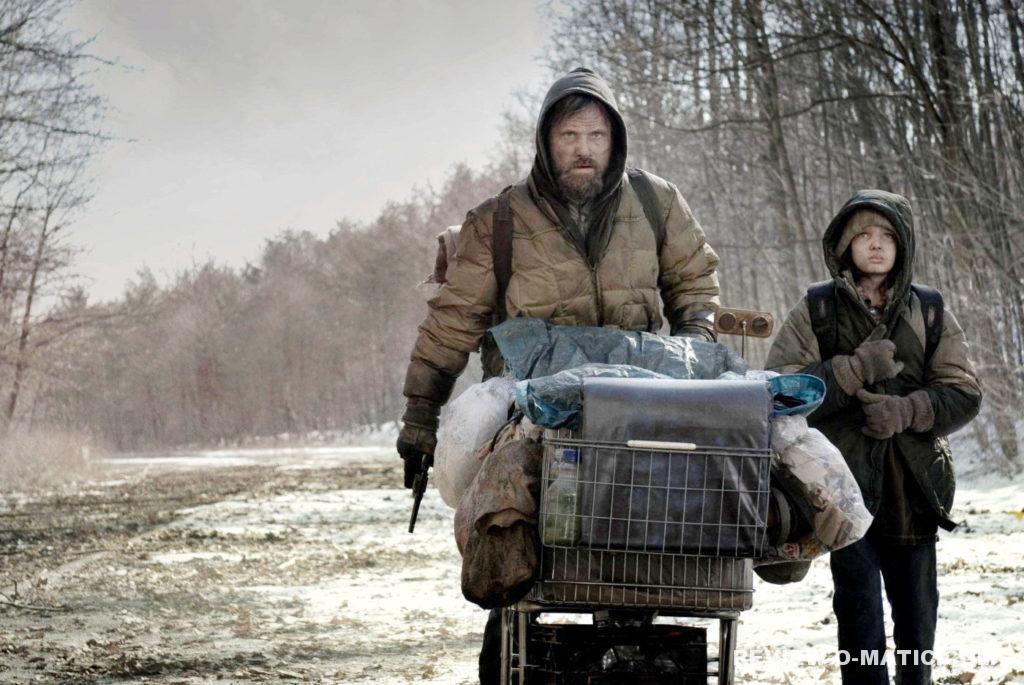Road, The (2009)

Viewers get only brief glimpses of life before “the incident” in 2009’s The Road. I suspect he reason we don’t see more of them is that life before the incident, much like the source of the incident itself, is irrelevant. No one cares what you used to do for a living when they haven’t eaten in two weeks.
The film follows a man and his son (both unnamed) as they make their way “south” toward water and, hopefully, less ravaged terrain. Whatever the cataclysmic event was has left the country largely barren. There is no grass on the ground or leaves on the trees, nor are there any birds in the sky. Everything that remains, including the people, is gray.
There is no guarantee that greener (both literally and figuratively) pastures lie to the south, but when resources run out, only hope is left. With little more than the clothes on their back and a pistol with two bullets as a last resort, the man and his boy head out. “Remember, put the barrel in your mouth and point it upward,” the man says as he places the barrel of the gun in his young son’s mouth, showing him the proper way to end his own life. In this post-apocalyptic world, there are fates worth than death.
Along the way, the pair encounter various groups of marauders who have resorted to violence and, in some cases, cannibalism. Multiple times the boy asks his father if they are the “good guys.” As resources run low and the two encounter others who are as hungry as they are, the line becomes as gray as the cloudy sky.
The Road mixes the hope of humanity with the despair of unknowing. The pair travels as long and as far as they can because, what else is there to do? Sometimes, survival comes down to one day at a time; sometimes, it comes down to a single step.